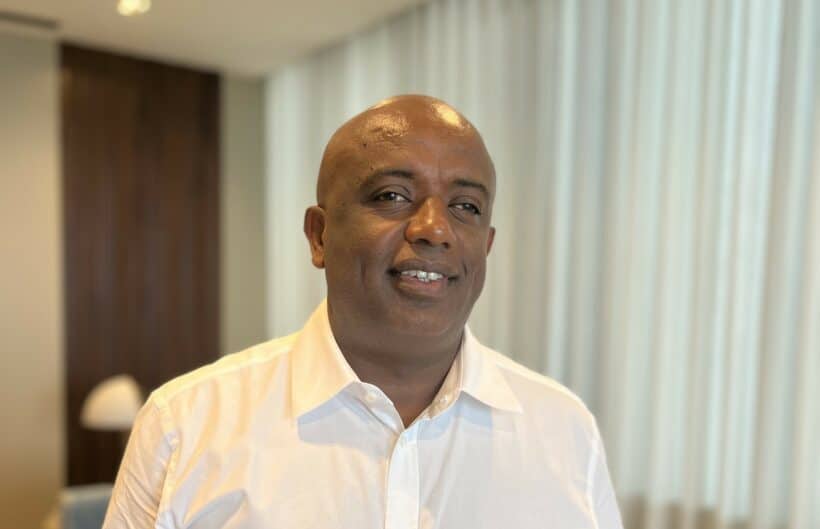
Investing in infrastructure and job creation in Africa has the potential to drive sustainable economic growth over the long term. With everyone working together, transforming Africa into a thriving, prosperous and equitable continent where skilled workers stay and contribute to their economies is possible.
To deliver sustainable growth in Africa, smart investments in promising sectors like manufacturing, technology and tourism are necessary. By diversifying, economies’ long-time dependence on the extraction of natural resources can be reduced – making them less vulnerable to volatile commodity prices.
A sustainable economy means making investments in which more than just the bottom line is considered. When allocating capital, choosing projects and partners, and making operational decisions, investors should ensure their investments:
- Foster equity and inclusivity: Investors should direct capital toward initiatives that will lead to improved well-being, including greater access to healthcare and education, and reduce poverty and income inequality. As investors build a business empire, build consensus and connection, too, giving respectful consideration to local perspectives, needs and cultural nuances.
- Are environmentally conscious: First, do no harm. Be mindful of the ecological footprint of investments. Responsibly utilize resources, and embrace renewable energy and sustainable agriculture.
- Boost resilience over the long term: Through investing in infrastructure, education and healthcare, economies will be better able to withstand shocks like climate change or economic downturns.
Primed for growth
Investments in transportation, energy and communication infrastructure are vital for facilitating trade and nurturing regional integration. An excellent example of this is the proposed Lamu Port-South Sudan-Ethiopia-Transport (LAPSSET) Corridor in East Africa. The project – which includes railways, airports, road networks and a port – will go a long way toward making the movement of goods and people in the region faster, cheaper and more efficient.
Investing in Africa’s growing tech scene has the potential to significantly enhance innovation, leading to the development of locally relevant solutions to challenges, increased productivity and the emergence of competitive businesses on the global stage. One success story worth emulating is M-PESA, which has brought convenient, cheap and secure financial services to more than 50 million customers across Africa. M-PESA offers a mobile wallet to store, send and receive money (no bank account necessary).
With its abundant sunshine and wind, Africa is set to be at the vanguard of the global energy transition. Investing in renewable energy, sustainable agriculture and climate-resilient infrastructure will help African countries adapt to climate change and mitigate its impact while offering new revenue and lucrative streams. The Noor Ouarzazate Solar Complex in Morocco is already generating a whopping 582MW of clean energy, reducing reliance on fossil fuels.
Improving access to – and investing in – healthcare will result in a healthier, more productive workforce and increased economic growth. Ghana is one nation leading the way. Its National Health Insurance Scheme (NHIS) aims to achieve universal healthcare by providing financial access to essential services for all citizens.
Collaboration and cutting-edge technologies
The poet John Donne wrote, “No man is an island,” and it is our view that neither are businesses. Collaboration unlocks powerful benefits – both for companies and for the economic “ecosystems” they are part of:
- Joint innovation, technology transfers and resource pooling lead to trailblazing solutions, greater cost-efficiencies and healthier profit margins.
- Expanded markets and robust supply chains promote resilience, economic stability and growth.
- Job creation, meaningful community engagement and lasting, trust-based partnerships will lead to inclusive, lasting prosperity built on a happy workforce and loyal customers.
Africa needs more skilled workers for businesses to thrive, and to achieve this, quality education needs to be cheaper and easier to access. As job opportunities grow, trained workers are more likely to stay – boosting economies and achieving their own success.
Companies must invest in people and innovation using user-friendly tech, training and collaboration. Without proper training, technology investments falter, demoralizing the workforce. Keep employees engaged with flexible work, tailored jobs and well-being initiatives. Open communication is essential.
Remember the ethical aspects of new technologies, as well. Measure their impact on productivity and job creation to ensure a smooth integration between tech and human talent, driving sustainable growth.
2024: A promising year
2024 shows great promise for many sectors in Africa. In order for Africa’s vast potential to be fully tapped, companies should:
- Invest in people, embracing both education and innovation.
- Be environmentally responsible, respectfully engage communities and navigate political hurdles with caution, care and sensitivity.
- Collaboratively diversify risks for long-term success.
At Heran Group, we believe investments can be both profitable and impactful. Our new pharmaceutical plant in Angola is a prime example. It’s creating more than 100 jobs, leveraging technology to improve local access to medications and has the potential to export in the future. This aligns with our overall approach: we seek investments that generate returns while creating jobs, empowering communities and promoting long-term sustainability. We’re betting on Africa’s potential, and we’re here to see it through – one sustainable project at a time.